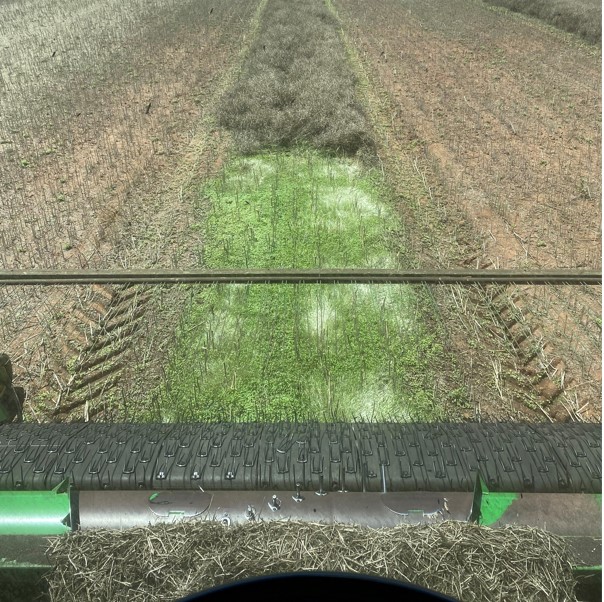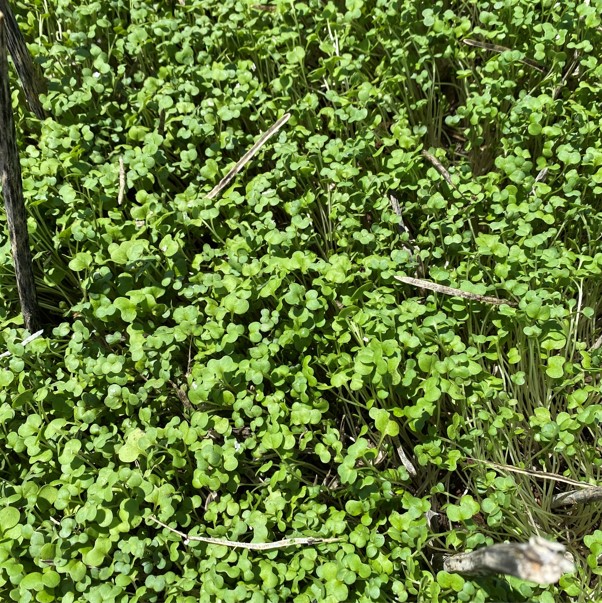The 2021-22 harvest might be called the Green Harvest yet...
An article in The Short Straw series by Lisa Castleman, Agronomist, Ag Services, Riverina Local Land Services (0427 201 963 or lisa.castleman@lls.nsw.gov.au)
The last rain was the rain we didn't need to have and it's proving costly.
Oilseeds and cereals are both susceptible to sprouting in the windrow and head if they receive enough rainfall and then can't dry out quickly. It all depends on how ripe the seed or grain was when the rain fell.
These photos show the canola seed which has already germinated under the windrow, where it shattered from the pod. The canola was windrowed at the usual timing of 40% ripe and was not late. Over 105mm rain was received on this paddock of ATR Bonito canola.


This sort of weather event means that quality grain can't necessarily meet the specifications or grade it was destined for. While grain buyers are responsive to new opportunities, it is the growers who need to find a new home for their commodities. Trucks get turned away from the silo which is a frustration as organising new arrangements is all downtime and the truck can't be used for the next load off the header unless there is sufficient storage on-farm or until a home is found.
Grain storage, handling & marketing bodies are now offering new grades such as CANTW (lower test weight canola) or CAN2 (lower test weight canola). There are specified limits for the minimum test weight of 58 kg/hl and the two grades each have a low and specified level of sprouting they will accept. These limits are important so that oil extraction can be realised. Yield wise, the canola harvest is going well and some local storages in the Riverina are nearly full. Canola prices on offer above $800/tonne for most grades remain excellent. Remember, in a challenging harvest, things change quickly and your local silo/bunker managers and grain buyers have all the information at their fingertips.
Riverina Local Land Services understands that many of our customers are experiencing challenges from recent rainfall and localised flooding events along creek-lines and natural watercourses. Fencing infrastructure has been damaged, fodder quality on the ground has been impacted severely and harvest is proving to be just as challenging with quality downgrades, poor paddock trafficability and labour shortages.
Remember that sometimes the best remedy for a short temper is a long sleep.
The sun will still come up tomorrow and you and your employees are your business's most valuable commodity.